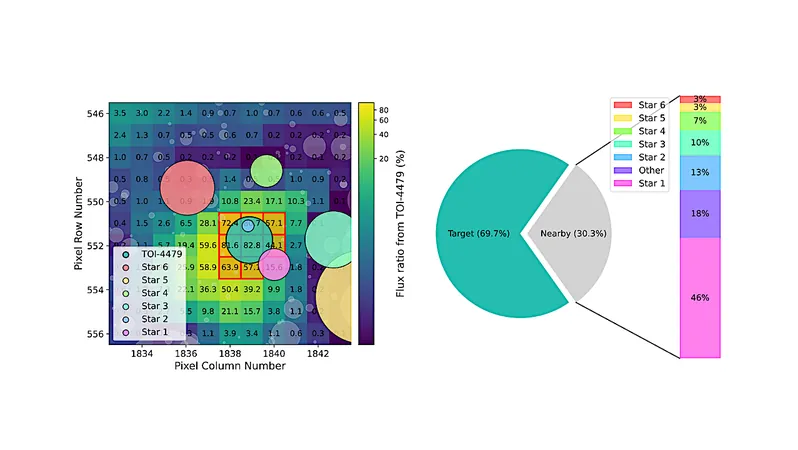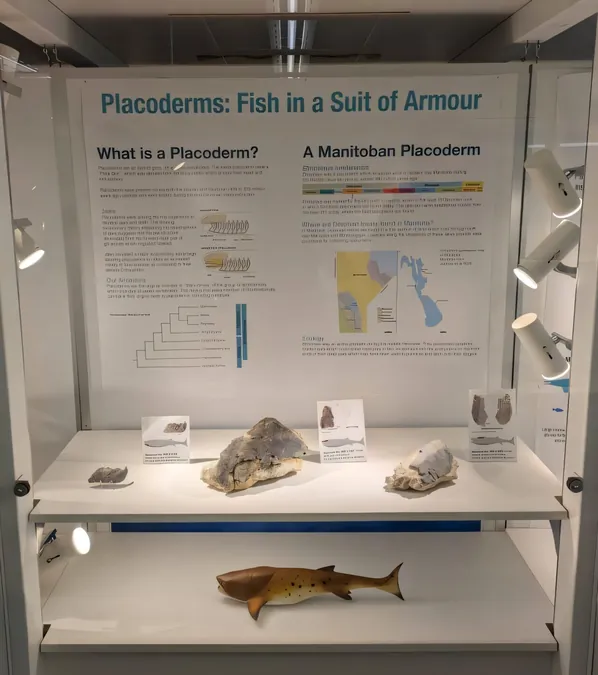
Unlocking the Secrets of Coral Resilience: Why Some Reefs are Beating the Heat
2025-06-12
Author: Liam
A groundbreaking study from McGill University and the Smithsonian Tropical Research Institute (STRI) has unveiled a fascinating reason why certain coral reefs resist climate-induced bleaching while others succumb to its effects. The answer? A complex relationship between corals and their microbial companions, intricately influenced by the environmental history of their waters.
Coral Reefs: The Ocean's Biodiversity Powerhouses
As climate change continues to escalate, coral reefs—critical ecosystems home to a quarter of marine species—face unprecedented threats. Bleaching occurs when stressed corals expel the essential algae that provide them with color and energy, leading to a higher risk of death. The declining health of these majestic reefs poses serious consequences for the entire marine ecosystem.
Temperature Turbulence: Nature's Classroom
The researchers made a pivotal discovery: corals that thrive in environments with fluctuating temperatures boast better survival rates against extreme heat compared to those in stable waters. This suggests that resilience is not solely determined by genetics, but also by environmental factors. The balance and stability of algae and bacteria within the coral are key players in this survival game.
Insights from Panama's Diverse Reefs
Victoria Glynn, the lead author of the study and a PhD student at McGill, expressed the significance of understanding coral resilience: Figuring out what makes some corals more resilient is crucial in determining how reefs can survive climate change, she said. The research team examined coral reefs across two distinct regions in Panama, the Gulf of Panama and the Gulf of Chiriquí, discovering stark differences in how corals reacted to stress.
Revealing the Genetic Secrets of Survival
Using the innovative Coral Bleaching Automated Stress System (CBASS), the researchers simulate marine heatwaves to observe coral responses under stress. Their findings revealed that despite sharing similar DNA, corals from the Gulf of Panama exhibited greater heat resistance, maintaining crucial protein levels and showing less oxidative damage than their more stable-water counterparts.
A Surprising Twist: The Trade-Off in Coral-Algae Relationships
One of the most surprising revelations was that, contrary to popular belief, many stressed corals did not switch to the heat-tolerant Durusdinium algae. Instead, they often retained the less resistant Cladocopium algae, which offers more energy but less thermal protection. This highlights a complex trade-off between energy and heat resistance.
Hope for the Future of Coral Reefs
These findings suggest that corals accustomed to fluctuating conditions may be better equipped to handle future climate extremes. This resilience could explain how the Gulf of Panama's reefs recovered remarkably from the catastrophic 1982 El Niño event. Sean Connolly from STRI emphasized the importance of this research, stating that understanding how coral communities adapt will allow us to predict which reefs are most at risk—and which may thrive in the face of climate change.
Supporting Research and Future Directions
The significant study, published in Current Biology, was led by Glynn alongside mentors from McGill and STRI. It showcases the importance of funding and support from various organizations to advance our understanding of coral resilience and conservation efforts.









 Brasil (PT)
Brasil (PT)
 Canada (EN)
Canada (EN)
 Chile (ES)
Chile (ES)
 Česko (CS)
Česko (CS)
 대한민국 (KO)
대한민국 (KO)
 España (ES)
España (ES)
 France (FR)
France (FR)
 Hong Kong (EN)
Hong Kong (EN)
 Italia (IT)
Italia (IT)
 日本 (JA)
日本 (JA)
 Magyarország (HU)
Magyarország (HU)
 Norge (NO)
Norge (NO)
 Polska (PL)
Polska (PL)
 Schweiz (DE)
Schweiz (DE)
 Singapore (EN)
Singapore (EN)
 Sverige (SV)
Sverige (SV)
 Suomi (FI)
Suomi (FI)
 Türkiye (TR)
Türkiye (TR)
 الإمارات العربية المتحدة (AR)
الإمارات العربية المتحدة (AR)